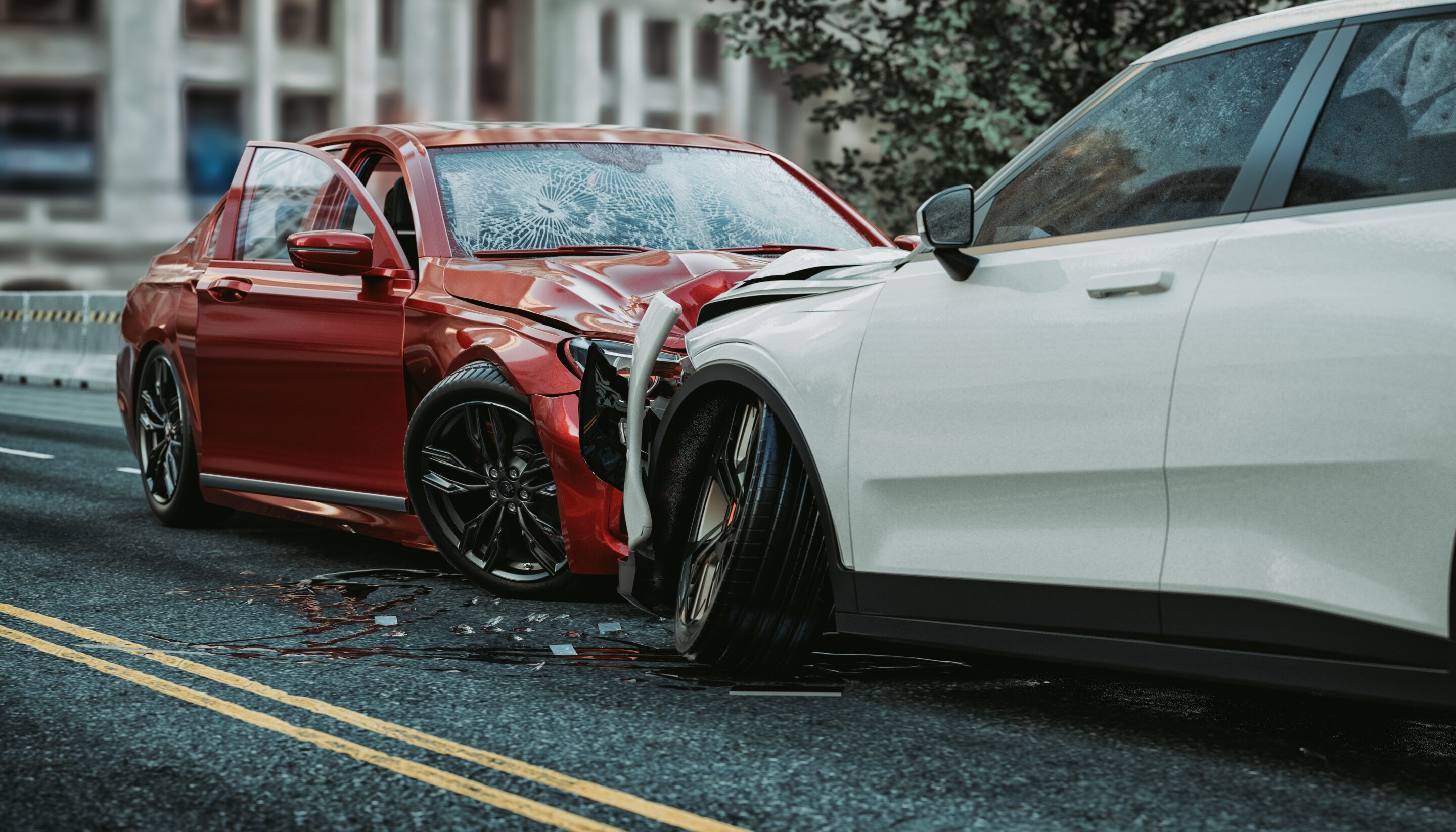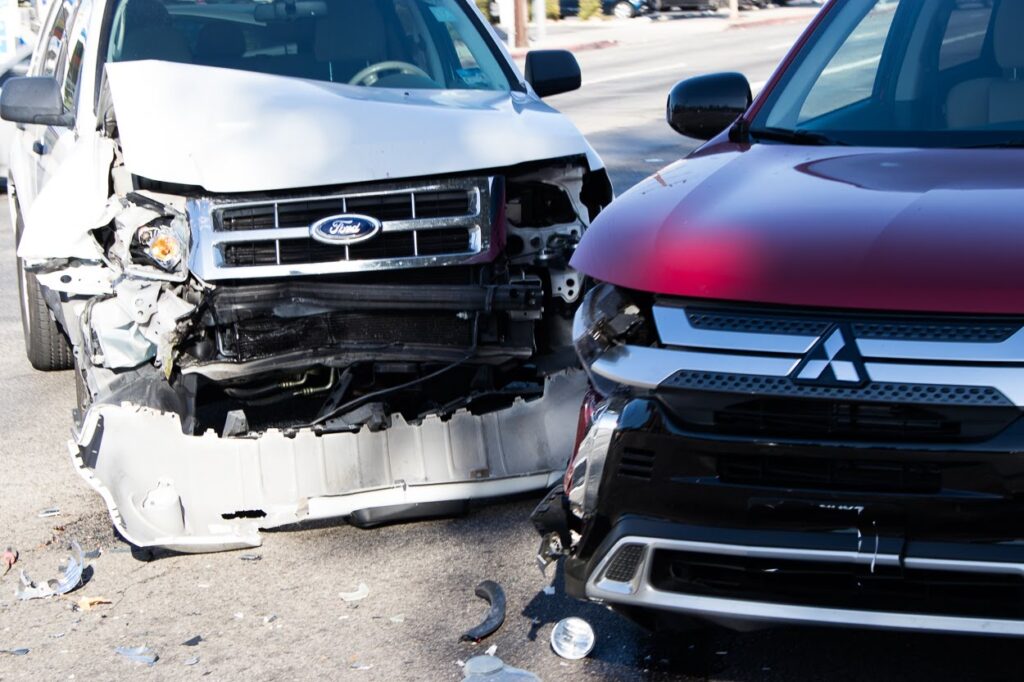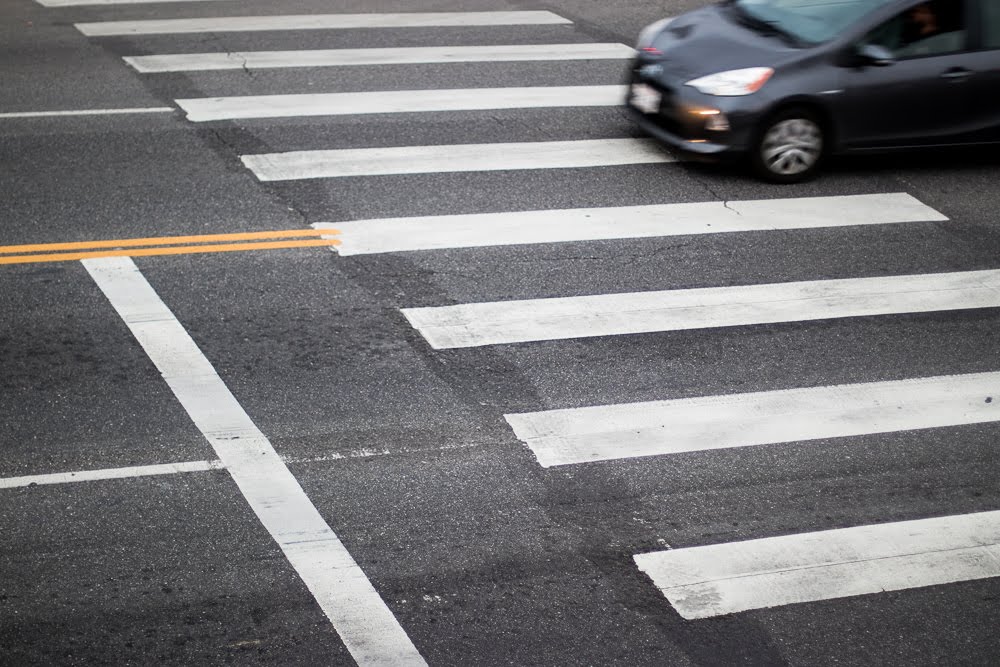Truck accident claims are more complex than car accident claims due to the significant differences in the size and weight of commercial trucks. These vehicles often cause more severe injuries and damages. Understanding the key distinctions—such as the scale of the accidents, liability factors, and the specific insurance requirements—is crucial.
Truck accidents are governed by stricter rules and regulations, which significantly impact how claims are handled. Being aware of these differences is essential for navigating the claims process effectively. At Maloney-Lyons, we specialize in helping clients understand and manage the unique challenges of truck accident claims, ensuring their rights are protected and they receive the compensation they deserve.
Key Takeaways
- Truck accident claims involve more complex and severe accidents than car accident claims.
- Commercial truck accidents often result in more significant injuries and damages due to the larger size and heavier weight of trucks.
- Truck accident claims have different insurance coverage requirements than car accident claims.
- Multiple liable parties may be involved in truck accident claims, including truck drivers, companies, and other parties.
- Stricter laws and regulations apply to commercial truck accidents, affecting the outcome of truck accident claims.
- Recognizing the differences between truck accident claims and car accident claims is vital for individuals involved in commercial truck accidents.
Understanding the Fundamental Differences in Truck vs Car Accident Claims
Truck accidents and car accidents differ a lot. Truck accidents can involve many vehicles and cause serious injuries or death. This is why truck accident laws are strict, aiming to keep commercial vehicles safe.
When it comes to truck accidents, figuring out who’s at fault can be hard. This is because truck accident liability involves many parties. The driver, the trucking company, and even the truck’s maker can be responsible. Also, truck accident insurance has higher limits and more options than car insurance.
Scale and Severity Comparisons
Truck accidents are much bigger and more dangerous than car accidents. Studies show they often lead to more deaths and serious injuries. This is because trucks are so big and heavy.
Multiple Liable Parties in Truck Accidents
In truck accidents, it’s not always clear who’s to blame. Often, it’s not just the driver. Here are some possible culprits:
- The truck driver
- The trucking company
- The manufacturer of the truck or its parts
Different Insurance Coverage Requirements
Insurance for truck accidents is different from car insurance. It has higher limits and more options. This is because truck accidents can cause a lot of damage and loss.
Federal Regulations and Their Impact on Truck Accident Cases
Federal regulations are key in truck accident cases. They cover truck maintenance and driver hours. The Federal Motor Carrier Safety Administration (FMCSA) oversees these rules. They can change how truck accident cases are decided.
The FMCSA’s hours of service rules are important. They can show who is at fault in accidents. This is a big part of truck accident compliance.
Knowing federal trucking laws is vital for truck accident cases. Important parts include:
- Hours of service to stop driver fatigue
- Truck maintenance to keep vehicles safe
- Driver qualification to ensure safe driving
These truck accident regulations are complex but vital. They help prevent accidents and hold the right people accountable. By following these rules, we can make our roads safer. This is crucial for federal trucking laws and truck accident compliance.
Complex Liability Issues in Commercial Truck Accidents
Determining who is at fault in commercial truck accidents can be tricky. Truck accident liability often involves more than one party. This includes the trucking company, the driver, and sometimes third-party companies. It’s important to understand each party’s role and liability.
Trucking companies can be blamed for accidents if they didn’t train or supervise their drivers well. Trucking company liability can also stem from poor vehicle upkeep or hiring unqualified drivers. Meanwhile, driver responsibility is key, as drivers can be held accountable for their actions, like reckless driving or breaking traffic laws.
Key Factors in Determining Liability
- Employer-employee relationships and the extent of control exerted by the trucking company over the driver
- Vehicle maintenance records and compliance with safety regulations
- Driver qualifications, training, and adherence to traffic laws
Looking into these factors helps untangle the complex issues of truck accident liability. This way, we can make sure all responsible parties are held accountable.
Evidence Collection and Investigation Procedures
In truck accident cases, finding evidence and investigating is key. We look for clues at the accident scene. This includes physical evidence, witness statements, and data from the truck’s systems.
During a truck accident investigation, we find many types of evidence. For example:
- Physical evidence, like skid marks and vehicle damage
- Witness statements from people who saw the accident
- Electronic data from the truck’s systems, including GPS and engine data
Experts in accident reconstruction help recreate the accident. This helps figure out what happened and who was at fault. By combining evidence and investigation with reconstruction, we build a strong case for our clients.
The aim of truck accident investigation and evidence collection is to gather all important info. This info helps prove who was responsible for the accident. With the help of skilled investigators and experts, we ensure our clients get the best outcome.
| Type of Evidence | Importance in Investigation |
|---|---|
| Physical Evidence | Helps to reconstruct the accident scene |
| Witness Statements | Provides firsthand accounts of the accident |
| Electronic Data | Offers valuable information about the truck’s systems and operations |
The Role of Black Box Data in Truck Accident Claims
Black box data, also known as electronic logging device (ELD) data, is key in truck accident claims. It helps recreate the accident and find its cause. ELDs track the truck’s speed, location, and how long the driver has been working.
The importance of electronic logging devices in trucking is growing. They offer crucial info after an accident. Truck accident data helps spot safety problems and prevent more accidents. Some important data ELDs record includes:
- Vehicle speed and location
- Driver hours of service
- Vehicle maintenance records
When it comes to black box data preservation, there are strict rules. This data is vital in court to support a claim. It’s crucial to handle and store it correctly. Knowing how truck accident data and electronic logging devices work in claims helps people navigate the legal process. It ensures they get the compensation they need.
Insurance Coverage Differences and Policy Limits
When it comes to truck accident insurance, the coverage and policy limits are different from car accidents. Commercial truck insurance policies have higher limits. This is because truck accidents can be more severe and involve more parties.
In the United States, commercial truck insurance covers liability, physical damage, and cargo. It’s important to know these differences. They can affect how much compensation victims get.
Some key aspects of truck accident insurance to consider include:
- Higher policy limits to account for the severity of potential accidents
- Multiple coverage options, such as liability and physical damage
- Different insurance requirements for commercial trucks compared to personal vehicles
Understanding these differences helps in filing a claim after a truck accident. It’s key to know about truck accident insurance and policy limits.
Timeline Variations Between Truck and Car Accident Claims
Truck accident claims take longer than car accident claims. This is because truck accidents are more complex. They need detailed investigations.
Car accidents are simpler. They involve fewer parties and less complicated liability issues. But, truck accidents have more parties. This includes the trucking company, the driver, and others. It makes the investigation and settlement negotiations longer.
Investigation Duration Differences
Truck accident investigations are more detailed. They gather evidence from black box data, witness statements, and vehicle checks. This can take weeks or months.
Legal Processing Timeframes
After the investigation, truck accident claims take longer to process legally. This is because of the case’s complexity. It requires expert testimony and evidence.
Settlement Negotiation Periods
Settlement negotiations for truck accidents are long. They deal with complex liability and insurance. Victims need an experienced attorney for fair compensation.
Here is a general outline of the timeline variations:
- Investigation: several weeks to months
- Legal processing: several months to a year or more
- Settlement negotiations: several months to a year or more
Damages and Compensation Distinctions
Truck accidents can cause serious harm to victims and their families. The compensation for truck accidents is often higher than for car accidents. This is because truck accidents are more complex and can lead to severe injuries or fatalities.
Getting fair compensation for truck accident damages is tough. It usually needs a lawyer who specializes in these cases. Several factors can influence how much compensation you can get. These include:
- The severity of the injuries or fatalities
- The extent of the property damage
- The complexity of the case and the number of parties involved
- The availability of evidence and the strength of the claim
Truck accident settlements help victims financially recover from their injuries. Knowing the differences in damages and compensation for truck accidents helps victims get the right support. This way, they can rebuild their lives after the accident.
| Type of Damages | Description |
|---|---|
| Medical Expenses | Covers the cost of medical treatment, including hospital stays, surgeries, and rehabilitation |
| Lost Wages | Compensates for wages lost due to the inability to work after the accident |
| Pain and Suffering | Provides compensation for the physical and emotional pain and suffering caused by the accident |
The Importance of Specialized Legal Representation
Truck accident cases are complex. They need specialized legal representation to navigate the claims process and secure fair compensation. Lawyers with experience in federal regulations and knowledge of the trucking industry can make a big difference.
Victims of truck accidents need truck accident expertise to guide them through the legal process. This ensures their rights are protected. Truck accident lawyers provide the necessary expertise and support to help victims get the compensation they deserve.
Experience with Federal Regulations
Truck accident lawyers with experience in federal regulations can help victims understand the complex laws. This is crucial in building a strong case and securing fair compensation.
Technical Knowledge Requirements
Technical knowledge of the trucking industry is also essential. Truck accident lawyers with this knowledge can help victims understand the causes of the accident. They can also identify the responsible parties.
Resource Capabilities
Finally, truck accident lawyers with access to resources and experts can help victims build a strong case. This may include working with accident reconstruction experts and medical professionals. They help build a comprehensive case.
Common Challenges Specific to Truck Accident Claims
Truck accident claims are often complex and hard to handle. Issues like figuring out who’s at fault and dealing with insurance companies are common. Victims of truck accidents may also face high medical bills, lost wages, and emotional trauma.
Some of the common issues in truck accident claims include:
- Complex liability issues, with multiple parties potentially at fault
- Strict regulations and laws governing the trucking industry
- High-stakes settlement negotiations, with significant financial compensation at stake
It’s important to know these truck accident challenges and common issues to get fair compensation and justice. For more information on truck accident claims, it’s crucial to talk to an experienced law firm. They can guide and support you through the process.
Steps to Take Following a Commercial Truck Accident
After a commercial truck accident, it’s key to follow the right truck accident steps. This helps protect your rights and get fair compensation. The process might seem complex, but knowing the immediate actions can guide you through it.
First, get medical help, even if you don’t feel hurt. This ensures any health problems are caught early. It also gives you a medical record of the accident. Next, document the accident scene. Take photos of the vehicles, road conditions, and any injuries.
Immediate Actions Required
- Seek medical attention immediately
- Document the accident scene, including photos and witness statements
- Notify the authorities and obtain a police report
After these immediate actions, talk to a lawyer who knows truck accidents. They can guide you through the claim process. This ensures you get the compensation you deserve.
Documentation Needed
Keep detailed records of the accident. This includes medical bills, repair estimates, and insurance correspondence. A lawyer can help you understand what you need and how to present it.
Legal Consultation Timeline
The time to get a legal consultation varies by accident and location. But, it’s best to talk to a lawyer quickly. This protects your rights and helps you get fair compensation.
| Step | Description |
|---|---|
| 1. Seek Medical Attention | Get medical help immediately, even for minor injuries |
| 2. Document the Accident | Take photos, get witness statements, and notify authorities |
| 3. Consult a Lawyer | Discuss your case and the legal consultation timeline with a truck accident lawyer |
Conclusion
FAQ
How are truck accident claims different from car accident claims?
Truck accident claims are more complex than car accident claims. This is because commercial trucks are bigger and heavier. They can cause more severe injuries and damages.
The laws for truck accidents are stricter. There are more rules for truck drivers and companies.
What are the fundamental differences in truck vs. car accident claims?
Truck accidents are bigger and more severe. They often involve more vehicles and can lead to serious injuries or deaths.
There are more people who could be at fault. This includes the truck driver, the company, and the truck’s maker. Insurance for truck accidents also has higher limits and more options.
How do federal regulations impact truck accident cases?
Federal rules are key in truck accident cases. They cover truck maintenance and driver hours. The Federal Motor Carrier Safety Administration (FMCSA) oversees these rules.
These rules can affect who is at fault in an accident. For example, rules on driver hours can impact liability.
What are the complex liability issues in commercial truck accidents?
Liability in truck accidents can be complex. Many parties might be responsible. This includes the trucking company, the driver, and even third-party companies.
It’s important to understand who is liable. This helps in determining who should pay for damages.
Why is evidence collection and investigation important in truck accident cases?
Gathering evidence and investigating is crucial. It helps figure out what happened and who is at fault. Investigators look at the scene, talk to witnesses, and check the truck’s systems.
Experts may recreate the accident. This helps understand the sequence of events.
What is the role of black box data in truck accident claims?
Black box data, or ELD data, is very important. It tracks the truck’s speed, location, and driver hours. This data helps recreate the accident and find the cause.
It’s also important to know how to handle this data. This includes following legal rules for keeping and using it in claims.
How do insurance coverage and policy limits differ between truck and car accidents?
Insurance for truck accidents is different. It has higher limits and more options. Commercial truck policies cover liability, damage, and cargo, among other things.
Knowing the differences is key. It affects how much compensation victims can get.
What are the timeline variations between truck and car accident claims?
Truck accident claims take longer. Investigations and legal processes are more complex. Settlement talks also take longer due to liability and insurance issues.
Understanding the timeline is important. It helps victims get compensation faster.
What are the distinctions in damages and compensation for truck accidents?
Truck accident damages can be higher. This is because the accidents are more severe. Victims may get more compensation.
Truck cases are complex. They often need specialized lawyers to get fair compensation.
Why is specialized legal representation important in truck accident cases?
Specialized lawyers are crucial. They know the trucking laws and regulations. They have the experience and resources to help victims.
They can navigate the claims process. This helps victims get the compensation they deserve.
What are the common challenges specific to truck accident claims?
Truck accident claims have unique challenges. Liability is complex, and regulations are strict. Settlements are high-stakes.
Victims face many hurdles. They must deal with insurance companies and trucking companies. Understanding these challenges is key to getting fair compensation.
What steps should be taken following a commercial truck accident?
After a truck accident, act quickly. Get medical help, document the scene, and talk to a lawyer. Knowing what to do and when can help victims succeed in their claims.





